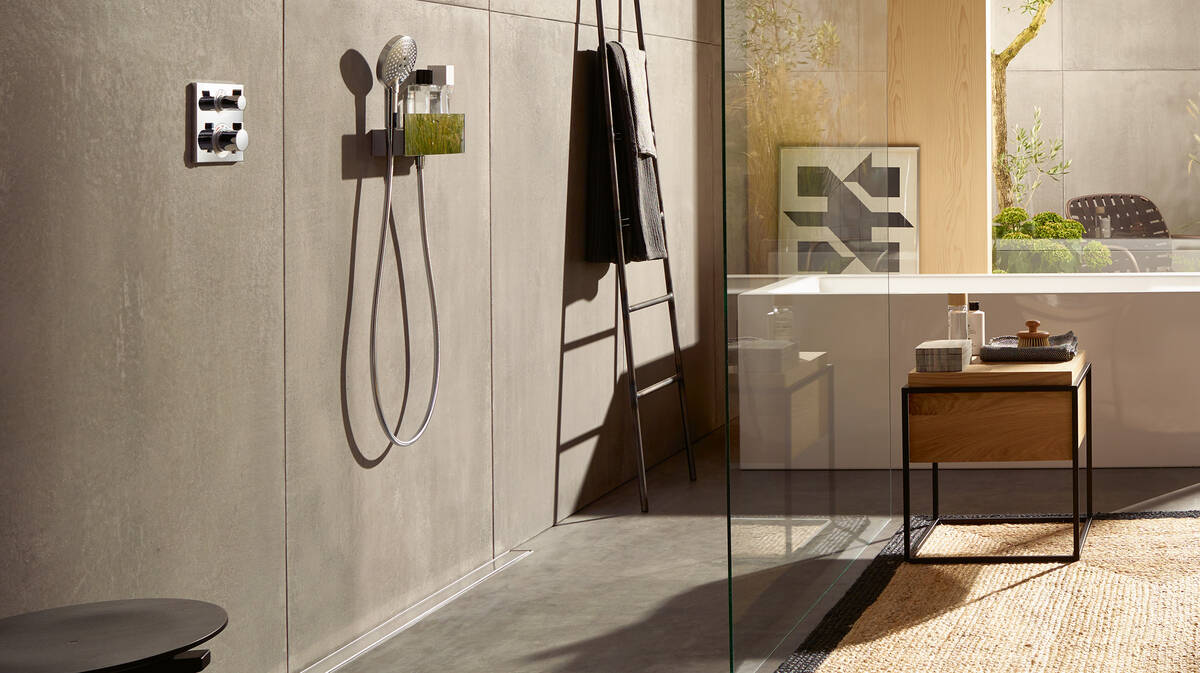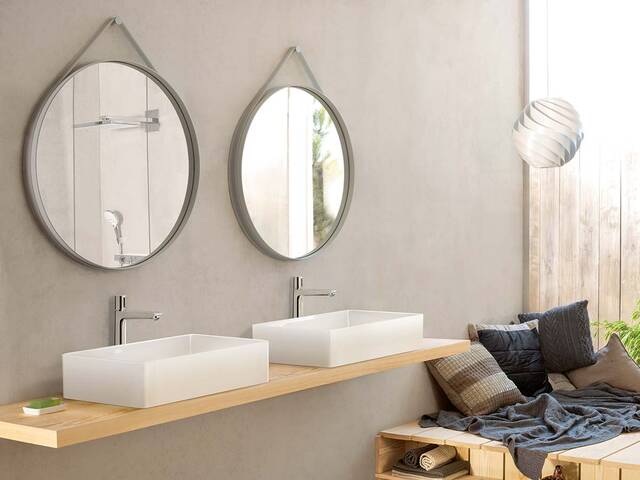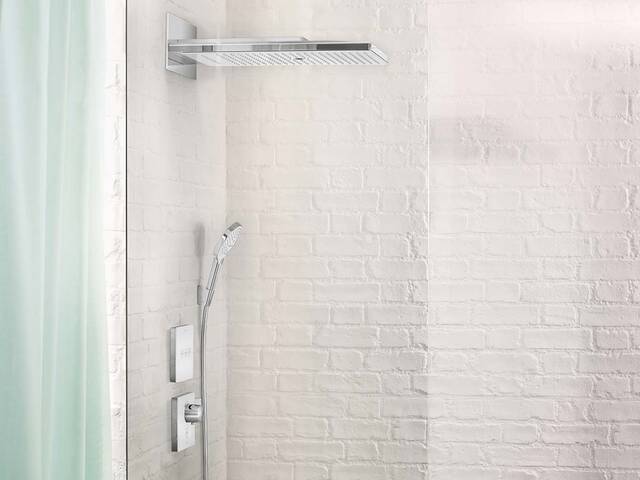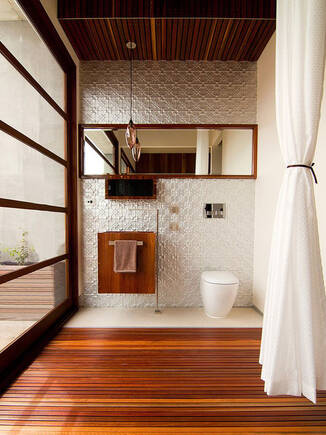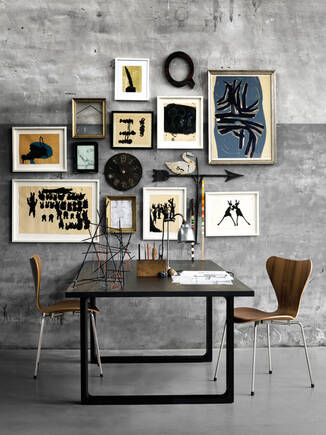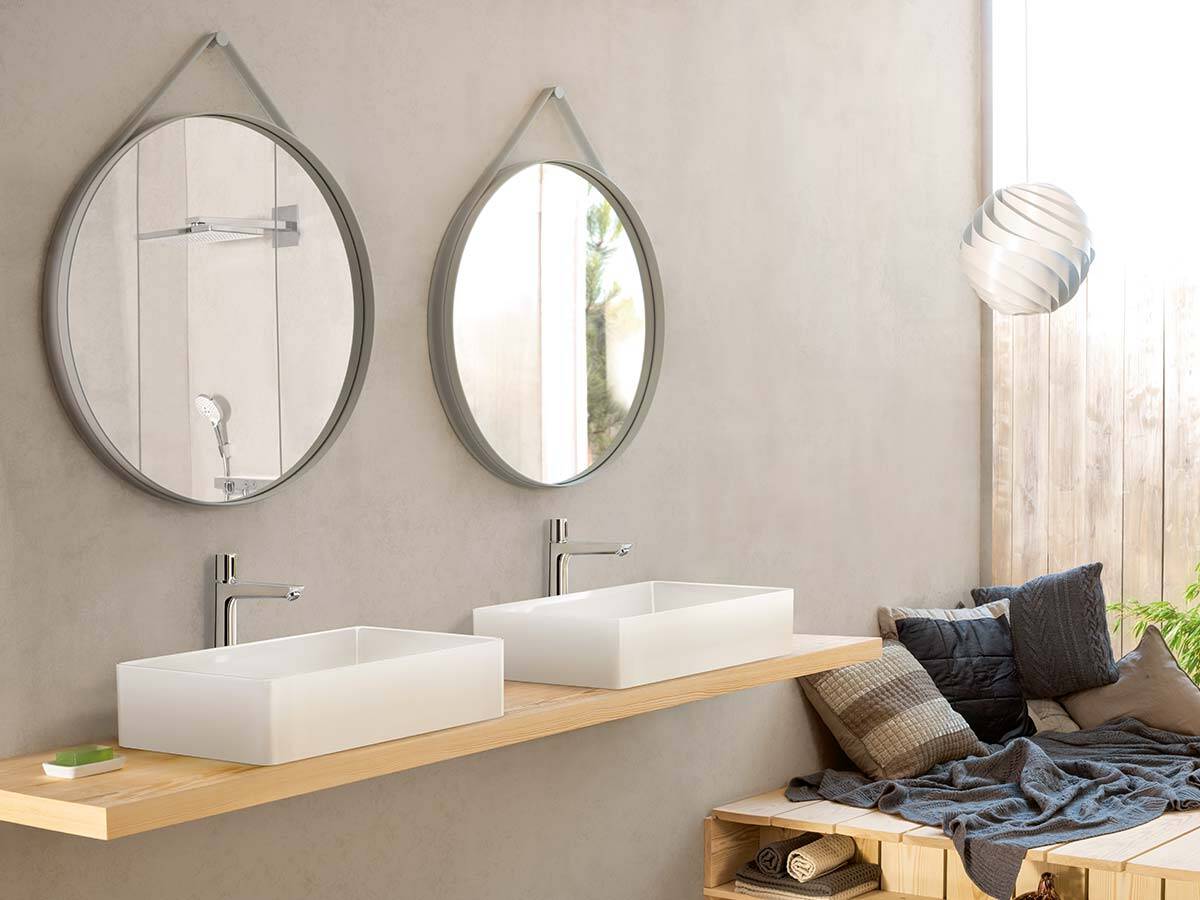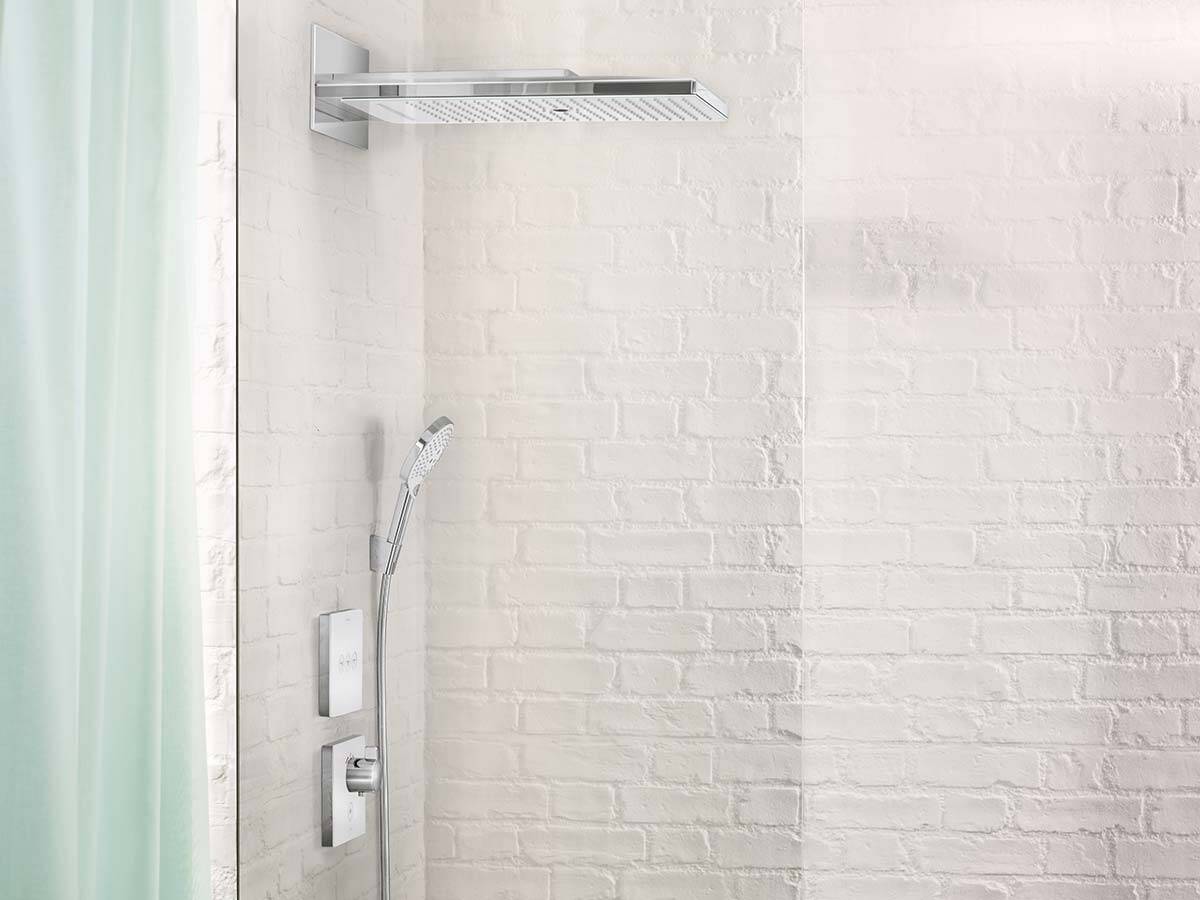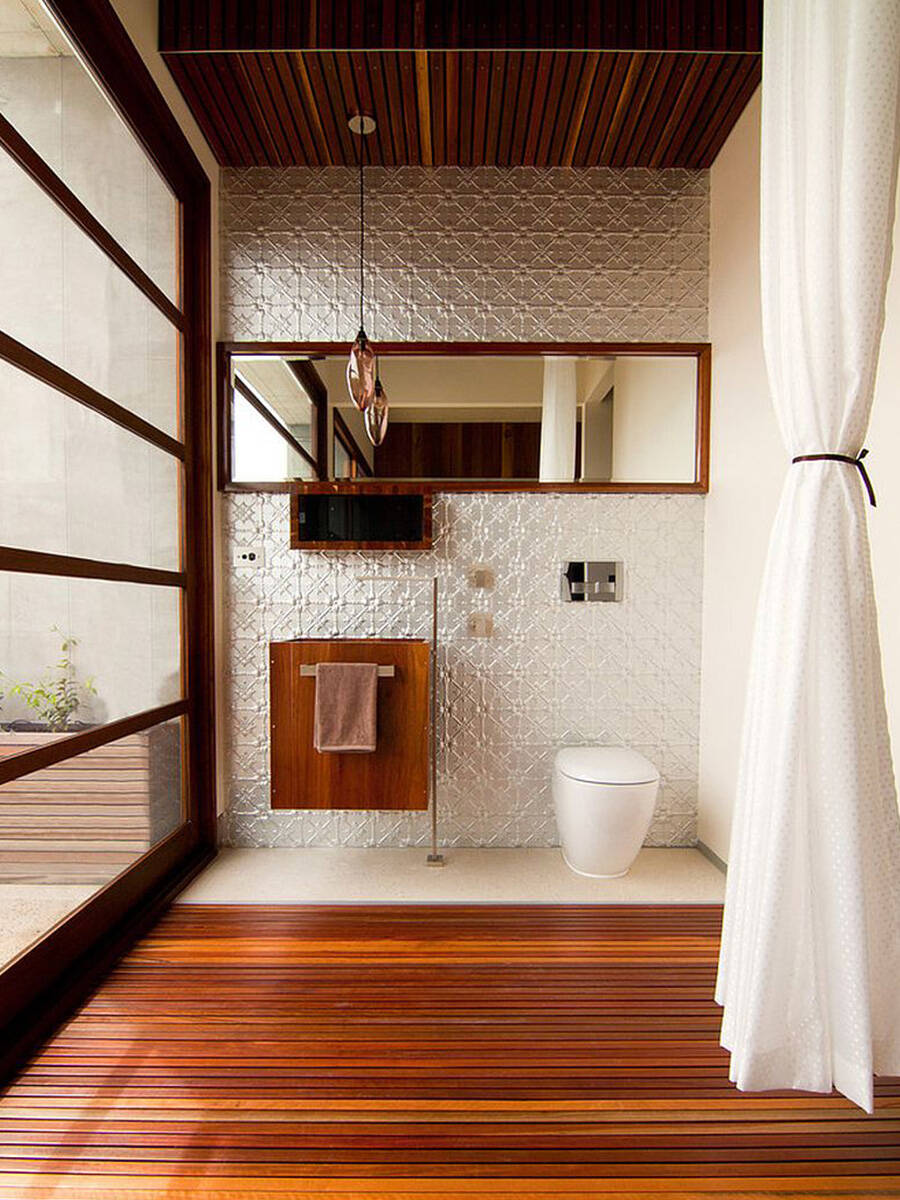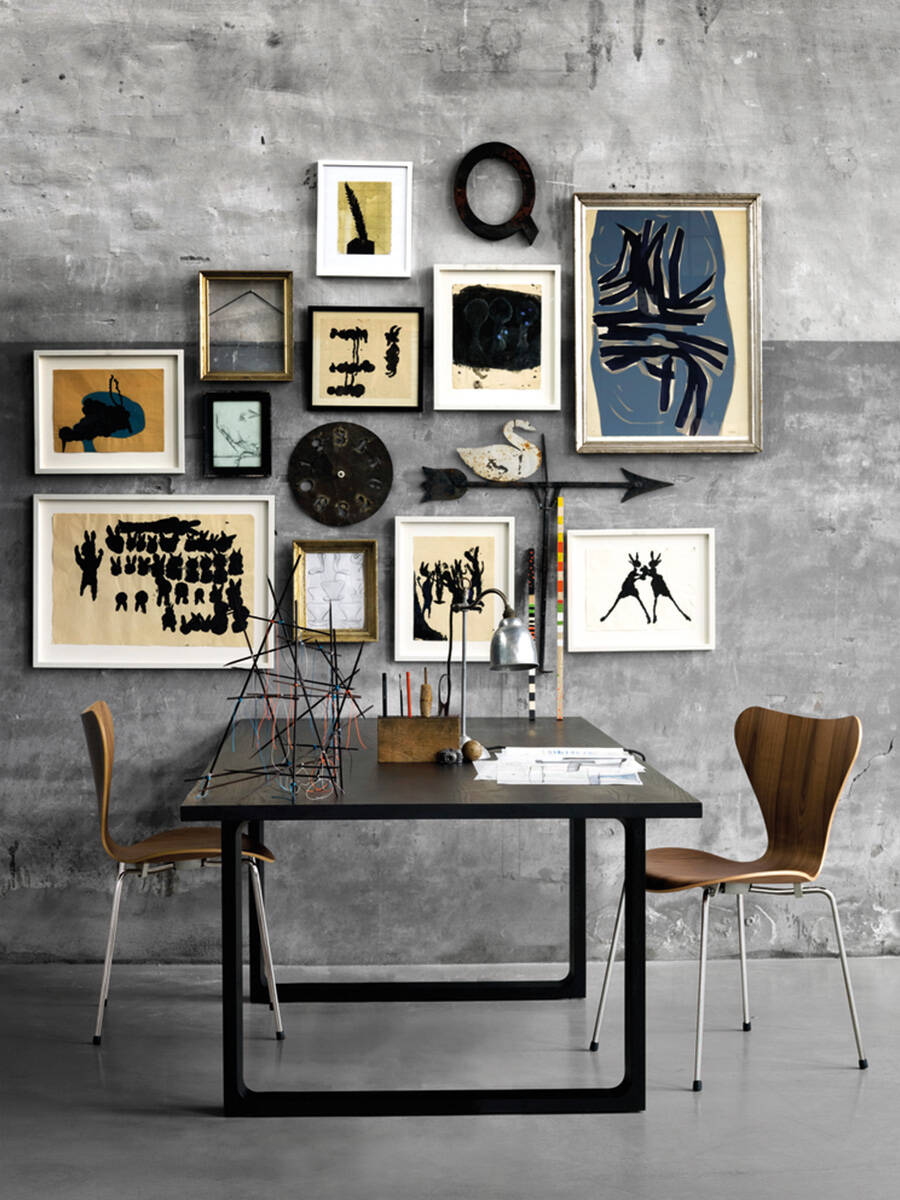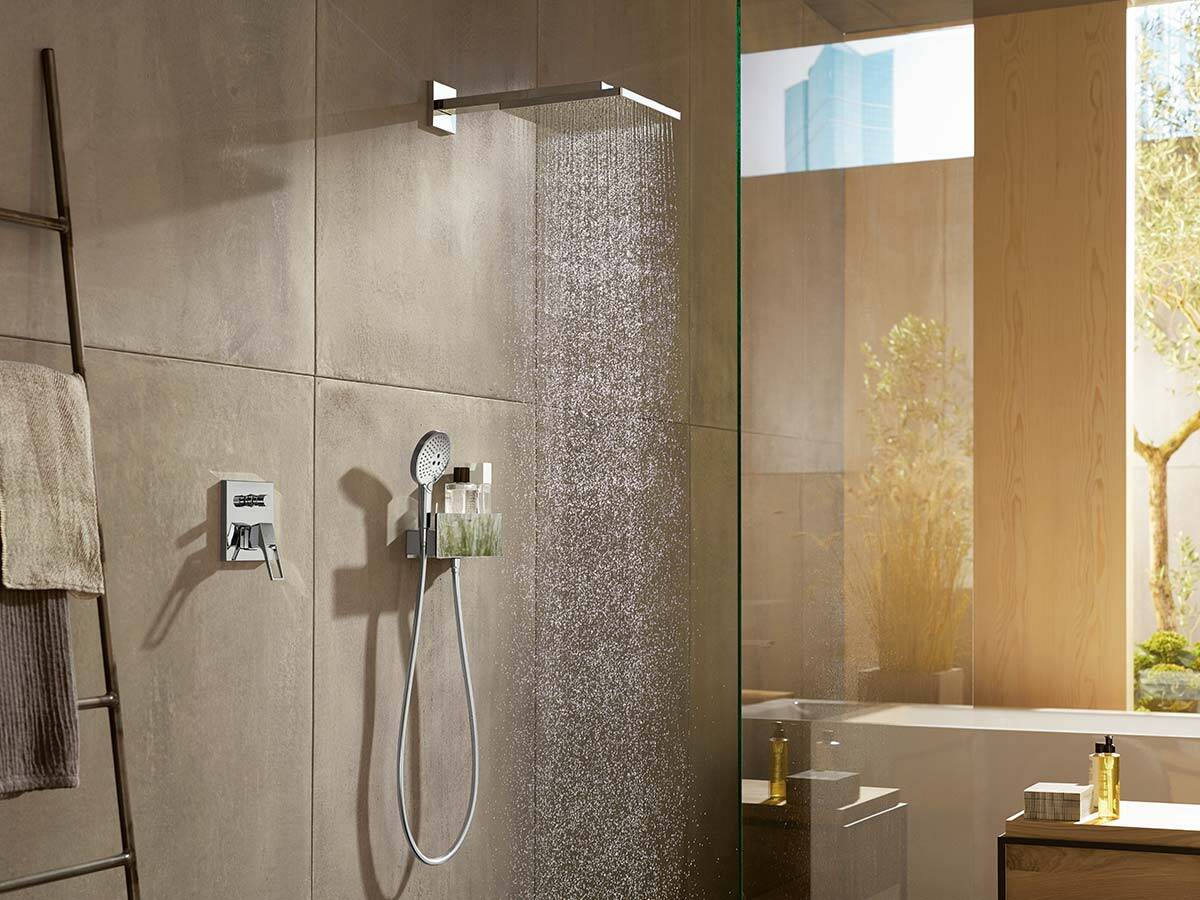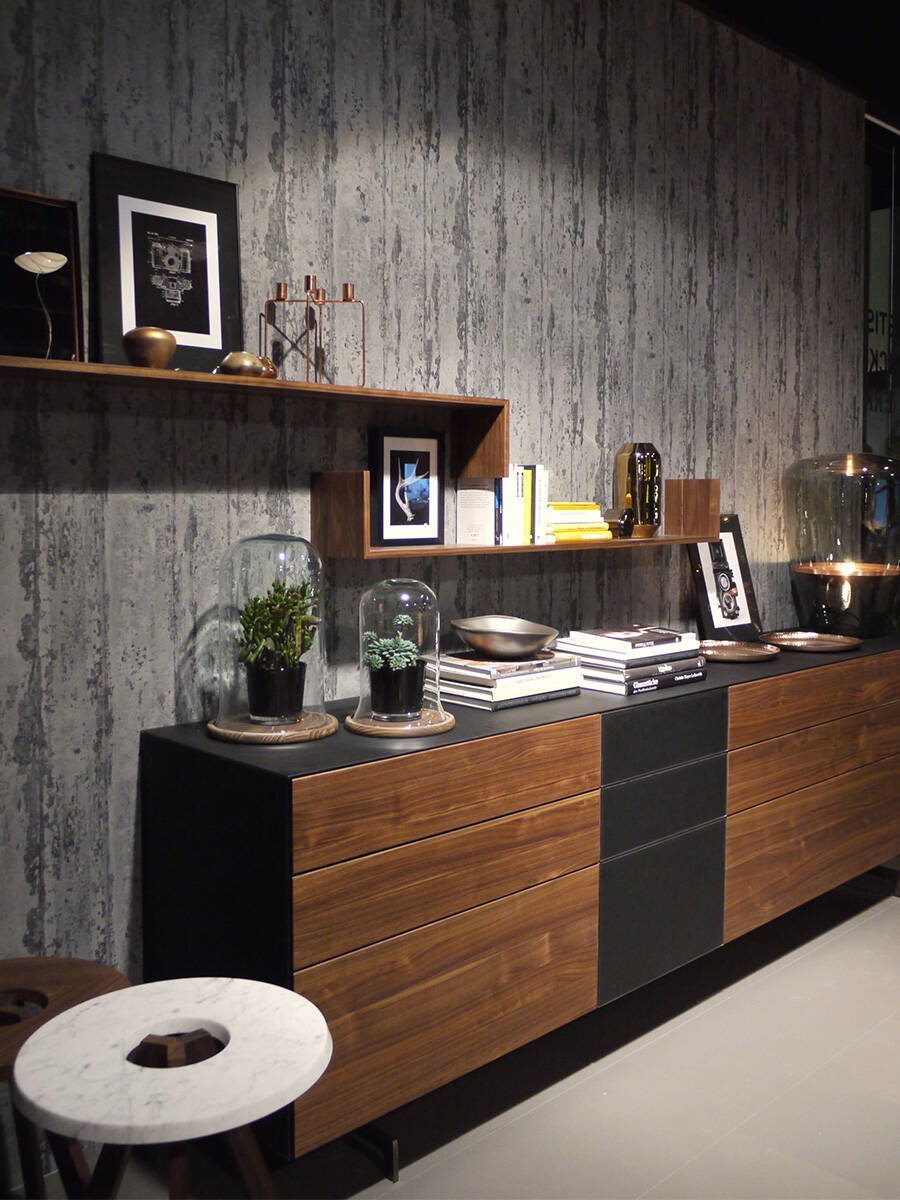A concrete effect for a stylish bathroom
Concrete-look bathrooms: Grey is so stylish and versatile
The material is both on trend and considered a classic. And for good reason: It can be transformed into a number of things and take any shape. With a masterfully crafted surface finish and carefully chosen accessories, you can produce an air of luxury in an Avantgarde style. We hope our stylish interior design ideas give you the inspiration you need!
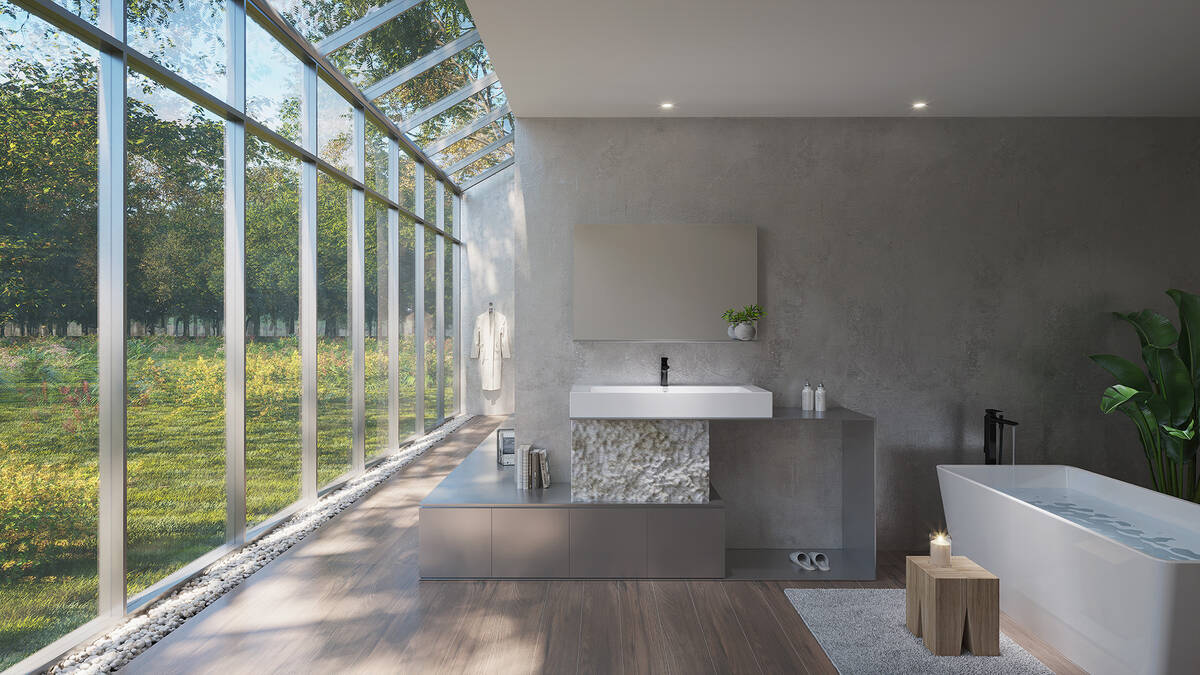
Contemporary bathroom convenience combined with the rough look
Exposed plaster walls create a sense of spaciousness, even in small bathrooms. The natural sheen of cement looks understated and blends in harmoniously with modern design. Convenience in the bathroom is ensured through the technology itself, which has a metallic sheen and is beautifully accentuated in the elegantly rustic ambience. Handcrafted accessories enhance the visual charm of the authentic surfaces here. For example, a coarse rug on smooth concrete adds a natural accent. Brickwork also forms an intriguing contrast to the high-quality taps and exquisite bathroom textiles.
A penchant for rough surfaces and contrast
As well as concrete and brickwork, recycled or used-look materials are also utilised in this bathroom trend. This design gives the rooms an unimaginably sensual feel. Many design enthusiasts end up captivated by the rugged charm of loft apartments.
If you are looking for a simple solution in a vintage look, wall décor can create sensational visual effects. You can even get innovative photo wallpaper in a concrete look (or a style inspired by rough materials) for your bathroom walls. Wood-effect tiles that look like they have a patina are extremely popular. This all goes to show, you can alter your bathroom setting to suit the current trends at very little cost or effort.
How to make grey on grey look fantastic
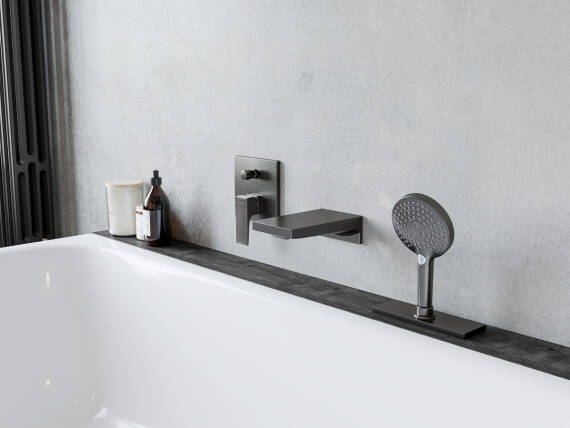
Most people see grey as just a mixture of black and white. But in reality, artists actually blend their shades of grey using complementary colours. Combining red and green or blue and orange provide vibrant greys with a depth that is just as attractive as it is warm.
Have you opted for this design? The following aspects will play a key role here:
- Wash basins and bath tubs
- Matching furniture
- Grey as the dominant colour
Wash basins and bath tubs in a concrete look
Concrete is a flexible material that can be shaped into anything you want: You can commission your architect to design a wash basin and bath tub to meet your exact requirements. Specialist manufacturers will then set about creating a piece from these blueprints. The design will have an immediate presence and convey a sense of clear objectivity and therefore serenity.
Leading manufacturers also sell modern sanitary facilities made of this building material. They weigh a lot and can sometimes be too much from a structural engineering perspective. So it is therefore also possible to buy wash basins and bath tubs separately.
Matching furniture
When it comes to the furnishings, you can either go for tone on tone or create a contrast. Exposed concrete comes in a variety of shades of grey. From afar, it looks like one uniform colour. It’s only when you look more closely that you see the full dynamic effect. Brushed stainless steel complements the look perfectly as the brushing creates a uniform yet deep surface finish.
On the other hand, grey blends well with all colours. So you can make a visual statement by having one or more pieces of furniture in your favourite colour. The surprise effect of radiant colours on a grey background requires bravery but can really breathe life into a space.
Grey as the dominant colour
We associate ‘grey on grey’ with gloomy rainy days. But shades of grey can gently captivate our imaginations. With grey as the dominant colour, you can express the suspense of storm clouds as much as you can the sedate atmosphere of nightfall.
The effect grey has depends on its context: Combined with red and dark colours, it can have a dramatic effect. Or you can bring the soft phases of a sunrise or sunset into your bathroom together with white, light greys and pastels. When paired with wood, it emphasises the connection with nature.
Industrial and Minimalist
Natural tones make authentic materials irresistible
A perfect pair: high-tech sheen on a natural surface
Modern bathroom taps and shower technology look striking on elegantly rustic surfaces. Natural, often irregular materials for walls and flooring direct attention to the linear and geometric design and emphasise the quality of the decorative items in the bathroom. Minimalist design featuring precision edges is combined with handcrafted surfaces and surfaces with deliberate signs of usage to create a fascinating overall look. The high-contrast design, which consists of a variety of textures in one, particularly appeals to individualists. Matching made easy: Product ranges for an all-in-one solution bring a sense of creative tranquillity to the bathroom. Taps and showers speak one common design language here, thus contributing to a coordinated overall look.
The perfect material for an impressive design
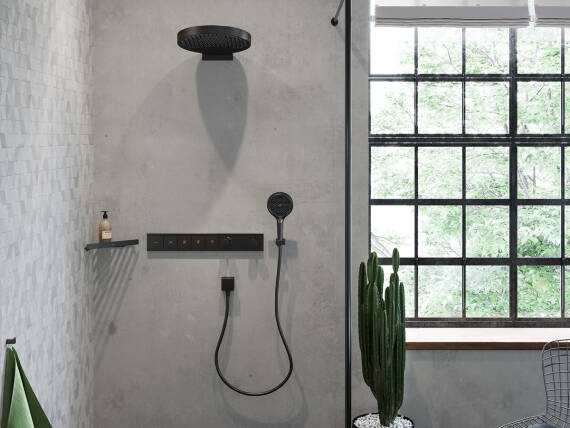
Concrete is a building material made of natural elements. It consists mainly of sand and gravel. These elements determine the look, which can vary greatly depending on the composition.
A little bit of cement and water bind the stony elements into a mixture that can be moulded into any shape. For cement, limestone, clay and sometimes even silica sand is heated to 1,450 degrees Celsius to create the powder, which then reacts with water and sets.
Design paired with craftsmanship
Masterful design and craftsmanship turn it into a material that embodies timeless elegance and luxury. How? Attention is only drawn to the look once the surface is treated. Sanding or sandblasting can significantly change the material's look. Bush hammering can give the set concrete unique character. In this stonemasons’ technique, special bush hammers can be used to make a matt surface finish with an eye-catching texture.
Excellent building-material characteristics
Concrete is fantastic because the long-lasting material can be used in so many ways. The robust building material protects against humidity and is heat- and sound-insulating. The pores on the surface are sanded and sealed for use in the bathroom to make the material dirt-repellent. Depending on how it is treated, it can also be made to look like natural marble.
Nevertheless, it is very heavy and is therefore only suitable for structurally robust properties. Using genuine concrete in old buildings can therefore pose problems. In this case, concrete-look building materials such as ceramic tiles, mineral plasters and even wallpapers are suitable alternatives. Waxed concrete, a primer made of artificial resin, sand and cement, can also replace genuine concrete.
Renaissance in the 19th century
The Ancient Romans were some of the first to appreciate the benefits of concrete. They used a material called ‘opus caementicium’ for aqueducts, bridges and harbours. With the downfall of the Roman Empire, concrete faded into obscurity. But it experienced a renaissance that began in England in the 19th century. In 1824, two bricklayers fired cement on the Isle of Portland. Within a few decades, the ‘grey gold’ then conquered the world.
Concrete look: feel-good factor with design appeal
It is so popular because it is an immensely versatile material. With the right interior design and specialist surface treatment, it exudes a sense of luxury. It can be combined with all colours and materials, thus offering aesthetic indulgence for all tastes.
Frequently asked questions about concrete-look bathrooms
Yes, concrete can be moulded into any shape. Specialist manufacturers can bring your ideas to life.
Yes, leading manufacturers make them in concrete.
It is the perfect building material for the bathroom because it protects against humidity and is heat- and sound-insulating.
This building material can be used in many ways. It looks ultra-elegant when combined with brushed stainless steel. Bold colours make a visual statement.
Crafting the surface, for example by sanding, sandblasting or bush hammering it, helps it to exude a sense of luxury.
Trusted partners
